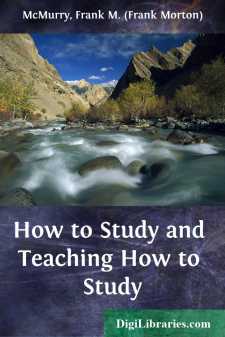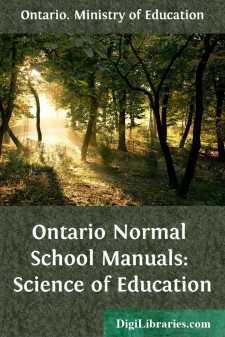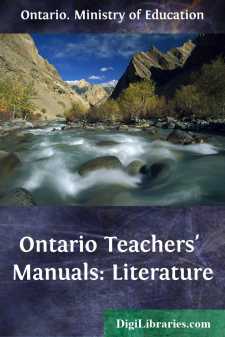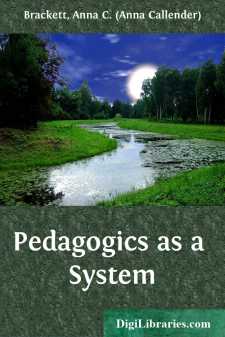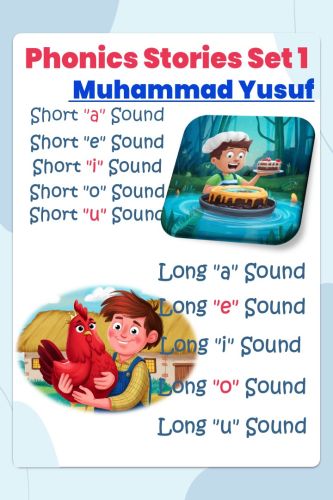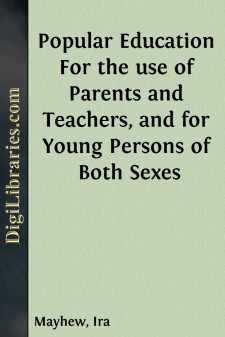Education
Education Books
Sort by:
This collection of scattered thoughts and observations has little order or continuity; it was begun to give pleasure to a good mother who thinks for herself. My first idea was to write a tract a few pages long, but I was carried away by my subject, and before I knew what I was doing my tract had become a kind of book, too large indeed for the matter contained in it, but too small for the subject of...
more...
INTRODUCTION The four essays on education which Herbert Spencer published in a single volume in 1861 were all written and separately published between 1854 and 1859. Their tone was aggressive and their proposals revolutionary; although all the doctrines—with one important exception—had already been vigorously preached by earlier writers on education, as Spencer himself was at pains to point out....
more...
HOW TO STUDY "For the end of education and training is to help nature to her perfection in the complete development of all the various powers."—Richard Mulcaster, 1522-1611. Education is an opportunity, nothing more. It will not guarantee success, or happiness, or contentment, or riches. Everything depends upon what development is produced by it and what use is made of it. It does not mean...
more...
CHAPTER I INDICATIONS THAT YOUNG PEOPLE DO NOT LEARN TO STUDY PROPERLY; THE SERIOUSNESS OF THE EVIL No doubt every one can recall peculiar methods of study that he or some one else has at some time followed. During my attendance at high school I often studied aloud at home, along with several other temporary or permanent members of the family. I remember becoming exasperated at times by one of my girl...
more...
INTRODUCTION HAVE THE SCHOOLS BEEN DISCREDITED BY THE REVELATIONS OF THE WAR? From School and Society, April 5, 1919 Knowing that I was about to publish a book on education in which the Great War, now happily closed, was not taken as the point of departure, a friend said to me one day, in substance, "Aren't you taking undue risks just now in putting out a book on education that isn't...
more...
CHAPTER I Value of Scientific Knowledge.—In the practice of any intelligent occupation or art, in so far as the practice attains to perfection, there are manifested in the processes certain scientific principles and methods to which the work of the one practising the art conforms. In the successful practice, for example, of the art of composition, there are manifested the principles of rhetoric; in...
more...
FORM IA.Selections from The Ontario Readers B.Supplementary Reading and Memorization: Selection may be made from the following: I.To be Read to Pupils: 1.Nursery Rhymes: Sing a Song of Sixpence; I Saw a Ship a-Sailing; Who Killed Cock Robin; Simple Simon; Mary's Lamb, etc. ConsultVerse and Prose for Beginners in Reading;Riverside Literature Series, No. 59, 15 cents. 2.Fairy Stories: Briar Rose,...
more...
INTRODUCTION. § 1. The science of Pedagogics cannot be derived from a simple principle with such exactness as Logic and Ethics. It is rather a mixed science which has its presuppositions in many others. In this respect it resembles Medicine, with which it has this also in common, that it must make a distinction between a sound and an unhealthy system of education, and must devise means to prevent or...
more...
by:
Muhammad Yusuf
Phonic stories to help Early Grade Readers, Spoken Other Languages.
by:
Ira Mayhew
Who is sufficient for these things? is a question which any one may well ask when sitting down to the preparation of a treatise on popular education. The author of this work would have shrunk from the undertaking, but from deference to the judgment of the honorable body that unanimously invited its preparation. He has also been encouraged not a little by many kind friends, one of whom, distinguished...
more...





